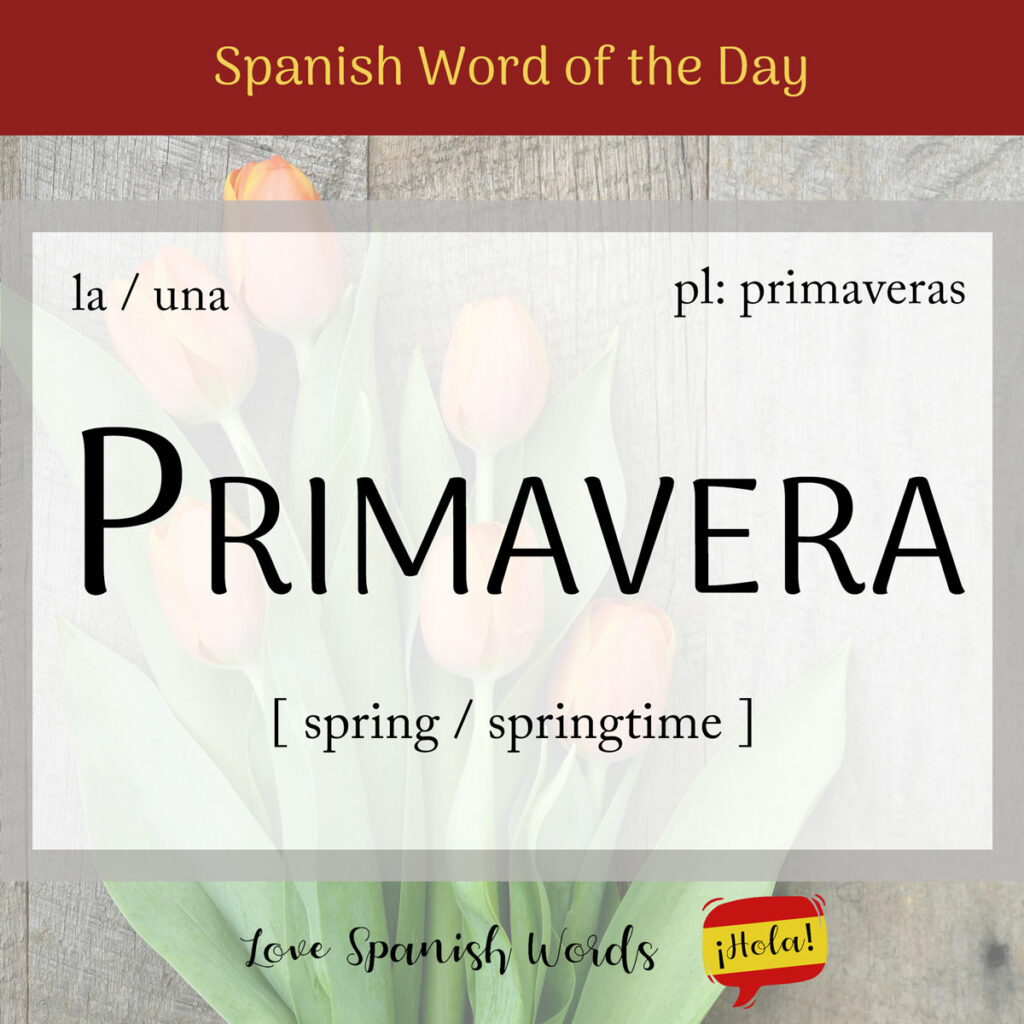If you ask someone about their favourite season, it’s a safe bet that many will pick spring, or primavera in Spanish.
Latin American Pronunciation
European Pronunciation

It derives from the Late Latin primavera, which goes back to the Classical Latin ablative primo vere, signifying “at the beginning of spring.”
Primavera is a feminine noun, so it takes the following definite and indefinite articles:
- la primavera = the spring
- una primavera = a spring
- las primaveras = the springs
- unas primaveras = (some) springs
Mi estación favorita es la primavera.
My favourite season is spring.
Primavera comes right after winter (invierno) and just before summer (verano). During this time, we enjoy longer days and warmer weather. It’s when flowers (flores) start to bloom, and trees wake up from their winter nap to sprout new leaves (hojas).
During spring, we often experience rain showers, which contribute to the lush, green landscapes (paisajes) and the growth of crops (cultivos). This season represents a transition, symbolizing renewal and the beginning of new life cycles in nature (naturaleza).
Here is some additional Spanish spring vocabulary you might find useful when describing the season:
- el brote = bud
- la mariposa = butterfly
- la oruga = caterpillar
- el nido = nest
- la brisa = breeze
- el charco = puddle
- el arcoíris = rainbow
- el sol = sun
- el paraguas / la sombrilla = umbrella
- el pasto / la grama = grass

Did you know that…?
Spring starts around March 20th – 20 de marzo – and ends around June 21st – 21 de junio. However, since the seasons vary in length, the start and end date of a new season can fall on different days each year.

Figuratively and poetically speaking, primavera can refer to the years of a person’s life, or to a person’s prime, as in the best or most successful years of their life.
Tiene sólo quince primaveras.
She is just fifteen years old.
Está en la primavera de la vida.
He is in the prime of his life.
Idiomatic expressions featuring ‘primavera’
Como burro en primavera
Literal translation: like a donkey in spring
English meaning: like a dog in heat

